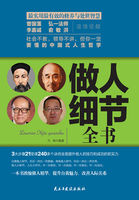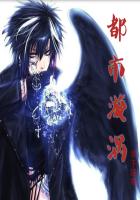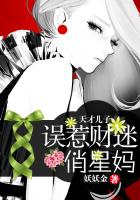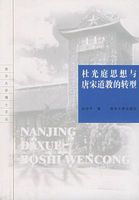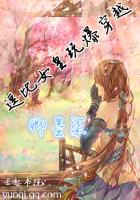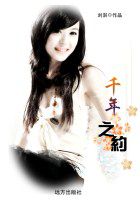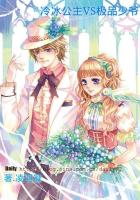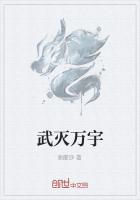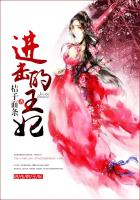The nutriment oozes through the blood vessels and the passages in each of the parts "like water in unbaked pottery." He did not recognize any distinction between arteries and veins, calling both plebes (Littre); the vena cave is the great vessel, and the aorta the smaller; but both contain blood. He did not use the word "arteria" (arthria) for either of them. There was no movement from the heart to the vessels but the blood was incessantly drawn upon by the substance of the body and as unceasingly renewed by absorption of the products of digestion,the mesenteric vessels taking up nutriment very much as the plants take theirs by the roots from the soil. From the lungs was absorbed the pneuma, or spiritus, which was conveyed to the heart by the pulmonary vessels--one to the right, and one to the left side. These vessels in the lungs, "through mutual contact" with the branches of the trachea, took in the pneuma. A point of interest is that the windpipe,or trachea, is called "arteria," both by Aristotle and by Hippocrates ("Anatomy," Littre, VIII, 539). It was the air-tube, disseminating the breath through the lungs. We shall see in a few minutes how the term came to be applied to the arteries, as we know them. The pulsation of the heart and arteries was regarded by Aristotle as a sort of ebullition in which the liquids were inflated by the vital or innate heat, the fires of which were cooled by the pneuma taken in by the lungs and carried to the heart by the pulmonary vessels.
[29] De Generatione Animalium, Oxford translation, Bk. II, Chap. 6, Works V, 743 a.
In Vol. IV of Gomperz' "Greek Thinkers," you will find an admirable discussion on Aristotle as an investigator of nature, and those of you who wish to study his natural history works more closely may do so easily--in the new translation which is in process of publication by the Clarendon Press, Oxford. At the end of the chapter "De Respiratione"in the "Parva Naturalia"
(Oxford edition, 1908), we have Aristotle's attitude towards medicine expressed in a way worthy of a son of the profession:
"But health and disease also claim the attention of the scientist, and not merely of the physician, in so far as an account of their causes is concerned. The extent to which these two differ and investigate diverse provinces must not escape us, since facts show that their inquiries are, at least to a certain extent, conterminous. For physicians of culture and refinement make some mention of natural science,and claim to derive their principles from it, while the most accomplished investigators into nature generally push their studies so far as to conclude with an account of medical principles." (Works, III,480 b.)
Theophrastus, a student of Aristotle and his successor, created the science of botany and made possible the pharmacologists of a few centuries later. Some of you doubtless know him in another guise--as the author of the golden booklet on "Characters," in which "the most eminent botanist of antiquity observes the doings of men with the keen and unerring vision of a natural historian"
(Gomperz). In the Hippocratic writings, there are mentioned 236 plants; in the botany of Theophrastus, 455. To one trait of master and pupil I must refer--the human feeling, not alone of man for man, but a sympathy that even claims kinship with the animal world. "The spirit with which he (Theophrastus) regarded the animal world found no second expression till the present age"
(Gomperz). Halliday, however,makes the statement that Porphyry[30] goes as far as any modern humanitarian in preaching our duty towards animals.
[30] W. R. Halliday: Greek Divination, London, Macmillan & Co., 1913.
ALEXANDRIAN SCHOOL
FROM the death of Hippocrates about the year 375 B.C. till the founding of the Alexandrian School, the physicians were engrossed largely in speculative views, and not much real progress was made, except in the matter of elaborating the humoral pathology.
Only three or four men of the first rank stand out in this period: Diocles the Carystian, "both in time and reputation next and second to Hippocrates" (Pliny), a keen anatomist and an encyclopaedic writer; but only scanty fragments of his work remain. In some ways the most important member of this group was Praxagoras, a native of Cos, about 340 B.C. Aristotle, you remember, made no essential distinction between arteries and veins, both of which he held to contain blood: Praxagoras recognized that the pulsation was only in the arteries, and maintained that only the veins contained blood, and the arteries air. As a rule the arteries are empty after death, and Praxagoras believed that they were filled with an aeriform fluid, a sort of pneuma, which was responsible for their pulsation. The word arteria, which had already been applied to the trachea, as an air-containing tube, was then attached to the arteries; on account of the rough and uneven character of its walls the trachea was then called the arteria tracheia, or the rough air-tube.[31a] We call it simply the trachea, but in French the word trachee-artere is still used.
[31a] Galen: De usu partium, VII, Chaps. 8-9.
Praxagoras was one of the first to make an exhaustive study of the pulse, and he must have been a man of considerable clinical acumen,as well as boldness, to recommend in obstruction of the bowels the opening of the abdomen, removal of the obstructed portion and uniting the ends of the intestine by sutures.

